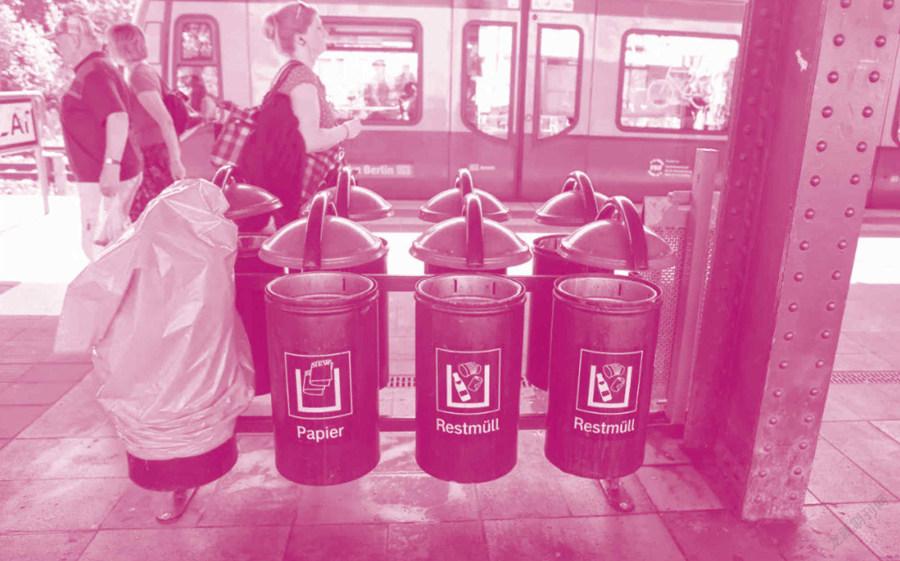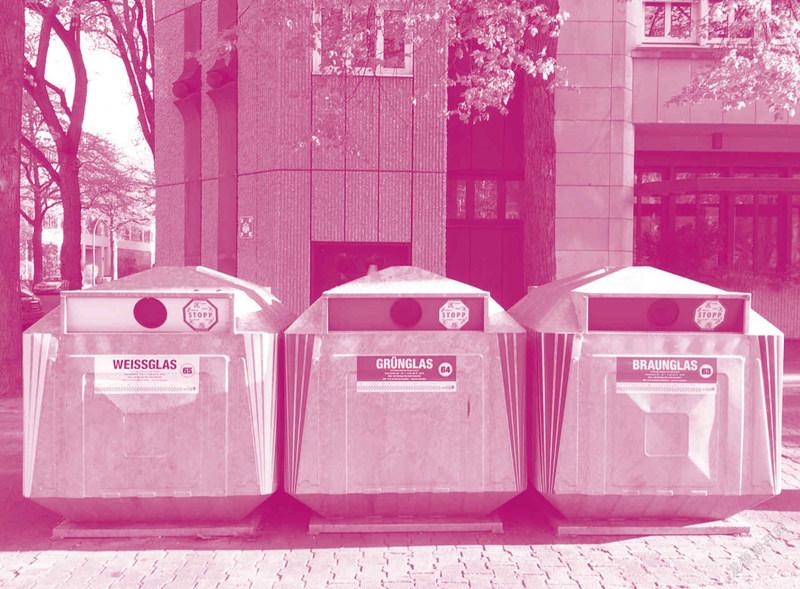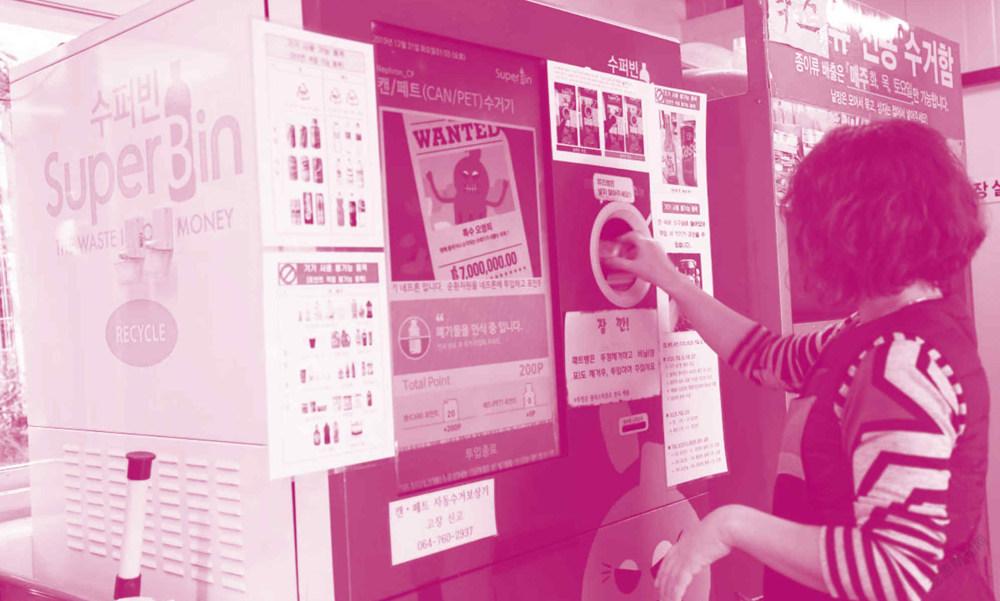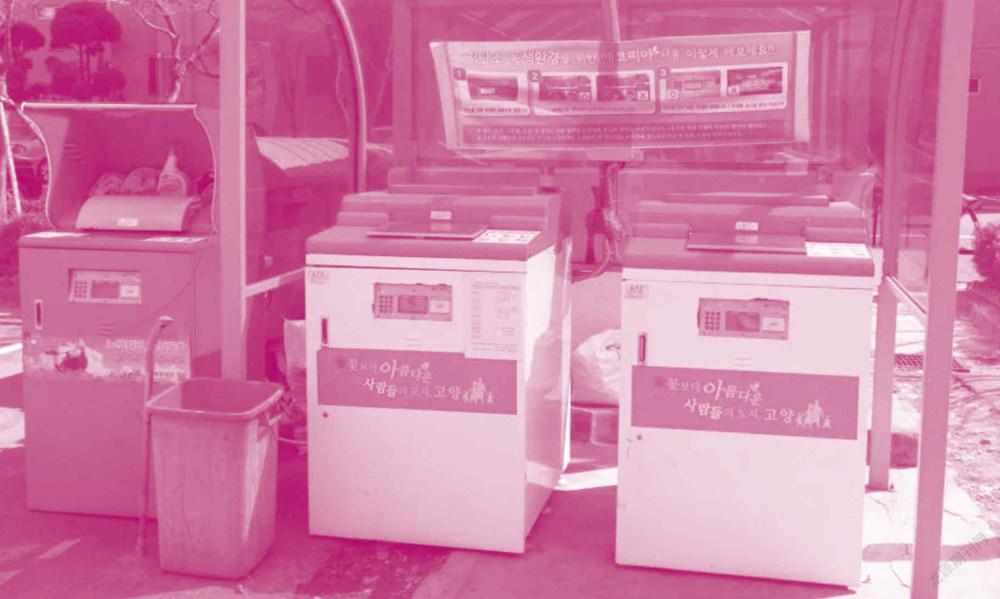各国垃圾分类文化趣谈
2021-03-19





Countries with the Most
Interesting Waste Sorting Culture
What Indonesians do with their trashes
印尼人如何處理垃圾
One thing for sure: it’s never too hard to throw your garbage in Indonesia. What Indonesians commonly do is putting their trashes in their personal garbage area which is usually located at the front of their house, right at the side of the street. Put it there, and the garbage collectors with their big garbage truck or rusty garbage stroller will pick their trashes up.
Things aren’t quite different if you live in the apartment in Indonesia. Collect it, wrap it in a tight plastic bag if you wish, then put it outside your room or a special corner in your floor hallway, designated for a waste collection area.
Waste collection bill in Indonesia is expected to be paid personally to the garbage collection agent—no tax added. It’s simply a cost for garbage workers fee and garbage truck transportation fee. Bring your wastes to your nearest dumping site or landfill and you don’t need to pay for anything.
有一件事可以肯定:在印尼扔垃圾从来不会太难。印尼人通常将垃圾放置在个人垃圾区域内,一般位于屋前、紧靠路边。之后,垃圾回收人员会用大型垃圾卡车或铁锈色垃圾推车将垃圾收走。
如果住在印尼的公寓里,情况也大同小异。将垃圾集中起来,愿意的话可以用塑料袋包紧,再放于房门外或楼道里指定作为垃圾回收区域的专用角落即可。
在印尼,垃圾回收费用由个人支付给垃圾回收机构——无须缴税。垃圾回收费仅包括垃圾工的人力和垃圾车的运输费用。如果自己将垃圾送至最近的垃圾场或填埋场,则无须支付任何费用。
导读:不同国家有不同的废弃物分类体系。各国采取的规则通常取决于该国现有的废弃物管理技术以及政府的未来规划。接下来让我们一起来看看各国的垃圾分类文化吧。
Germany: The leader of the world’s waste-recycling race
德国:全球废弃物循环利用领先者
Germany is the country with the world’s number one recycling system. The country has a quite detailed way of sorting their waste—down to the color of the glass waste you wished to throw away, the type of paper that could be put inside the paper waste bin, separate bin for metals, another different bin for plastic, another different bin for ceramic or broken glass, etc.
Here below are what you should know about Germany’s waste sorting system:
● You are expected to gather your waste in your apartment/housing area’s local public garbage bins along with the other residents.
● There are commonly 7 public garbage bins available in the German’s apartment/housing area:
1. Blue bin—for paper and cardboard, greasy pizza box goes to the gray bin!
2. Green and white bin—for glass, different bins for different glass colors, not available for Christmas ornaments and light bulbs!
3. Yellow/orange bin—for plastic and metals.
4. Brown bin—for biodegradable goods.
5. Gray/black bin—for everything else that can’t be recycled such as used diaper, kitty litter, animal waste, and ashes.
● Some items do not belong in your apartment/housing area’s public garbage bins. Items like used batteries, electronics, unused paints, light bulbs, and appliances must be returned to the special agents/locations so they can be recycled. Other items such as clothes, shoes, and oversized trash and furniture are advised to be sold or donated.
● There’s this thing called Pfand in Germany, a certain portion of the price on a bottled drink that you get back if you return the said bottle to a certified outlet. German law requires all shops over a certain size selling bottled drinks have to have a place to return bottles with deposits.
德國拥有世界最好的循环利用体系。该国的废弃物分类十分细致——细到根据玻璃的颜色分别丢弃,根据纸张的类型确定能否扔进纸张回收箱,金属、塑料、陶瓷、碎玻璃等也都有各自不同的回收箱。
关于德国的废弃物分类体系,你应当了解以下信息:
·须和其他住户一样,将垃圾集中至所在公寓/住宅区的公共垃圾箱中。
·德国的公寓/住宅区通常提供七种垃圾箱:
1. 蓝箱——投放纸张和纸板,油腻的比萨盒要投进灰箱中!
2. 绿白箱——投放玻璃,不同颜色的玻璃投进不同的箱子,不能投放圣诞装饰和灯泡!
3. 黄/橙箱——投放塑料和金属。
4. 棕箱——投放可生物降解的消费品。
5. 灰/黑箱——投放所有不能循环利用的东西,比如用过的尿布、猫砂、动物废弃物和灰烬。
·有些物品不能扔进所在公寓/住宅区的公共垃圾箱内。像使用过的电池、电子产品、未使用过的涂料、灯泡和家电等物品,须送到专门机构/地点进行回收利用。其他物品,如衣物、鞋子以及大型垃圾和家具,建议出售或捐赠。
·在德国,还有所谓的饮料瓶押金,占瓶装饮料价格的一定比例,如果将瓶子送回经过认证的经销店,即可退还押金。德国法律规定,所有超过一定规模且销售瓶装饮料的商店,都须设置押金退还点,回收附带押金的饮料瓶。
South Korea: A role model in the effort of reducing waste
韩国:减少废弃物的楷模
One of the most notable technologies that South Koreans use in their waste management system is the electronic food waste bin equipped with RFID (Radio-Frequency Identification). People will have to tap their identification card before they could throw their waste into the public garbage bin. The garbage bin will then measure the weight of the trashes, calculate and accumulate it, and then send the garbage bill to the said person.
Here below several interesting things you might want to know about South Korea’s waste management system.
Almost similar to Germany, a public garbage area exists in the housing/apartment in South Korea. People have to sort their waste without fail and put it into the right disposal bins. Here are the types of garbage bin provided in South Korea:
·Food Waste, anything that could be eaten by animals
·Recyclable Waste
·Oversized Waste, mostly electronics and furniture
·General Waste, anything that doesn’t belong to the other types
For instance, because food waste bin is reserved for anything that can be eaten by animals, eggshells, crustacean shells, and bones are fairly prohibited from it. You are going to have to separate the bones from your meat waste, put the meat waste in the food waste bin and put the rest of the bones in the general waste bin.
Another thing to keep in mind about South Korea’s waste management system:
·Each district in South Korea has its own official garbage bag. People will have to use the one that is exclusive to the place they live in. The garbage bags could be bought at the local supermarket.
·In South Korea, the cost of garbage collection and disposal is included in the price of the garbage bags you purchase. This is why South Korea is setting the price of their garbage bags based on the type of waste and the volume of it.
韓国最引人注目的废弃物管理技术是配备了射频识别的电子食物废弃箱。人们必须刷身份证,才能将废弃物投入公共垃圾箱中。垃圾箱会对废弃物称重,计算并累计,再将垃圾回收账单寄给相应的投放人。
以下几个关于韩国废弃物管理体系的有趣事实,或许能引起你的兴趣。
与德国类似,韩国的住宅/公寓有公共垃圾回收区域。人们须准确无误地将废弃物分类并正确地投入垃圾箱中。韩国有以下几种垃圾箱:
·食物废弃物,任何动物可以吃的东西
·可循环利用的废弃物
·大型废弃物,多为电子产品和家具
·一般废弃物,一切不属于其他类型的物品
例如,食物废弃箱仅回收动物可以吃的东西,因此理所当然禁止投放蛋壳、甲壳类动物的壳和骨头。你须将骨头和肉分开,肉扔进食物废弃箱中,剩下的骨头则扔进一般废弃物箱中。
关于韩国废弃物管理体系,还需要记住:
·韩国每个区都有官方提供的垃圾袋。人们须使用居住地区专属垃圾袋。垃圾袋可以在当地超市购买。
·在韩国,垃圾袋的价格包含了垃圾回收和处理的成本。因此,韩国垃圾袋的定价取决于废弃物的种类和分量。
Word Study
designate /'dezɪɡneɪt/ v. 指定;命名
This area has been designated (as) a National Park.
appliance /ə'plaɪəns/ n. (家用)电器;器具
donate /dəʊ'neɪt/ v. 捐赠;赠送
He donated thousands of pounds to charity.
prohibit /prə'hɪbɪt/ v. (尤指以法令)禁止
1176501705321
